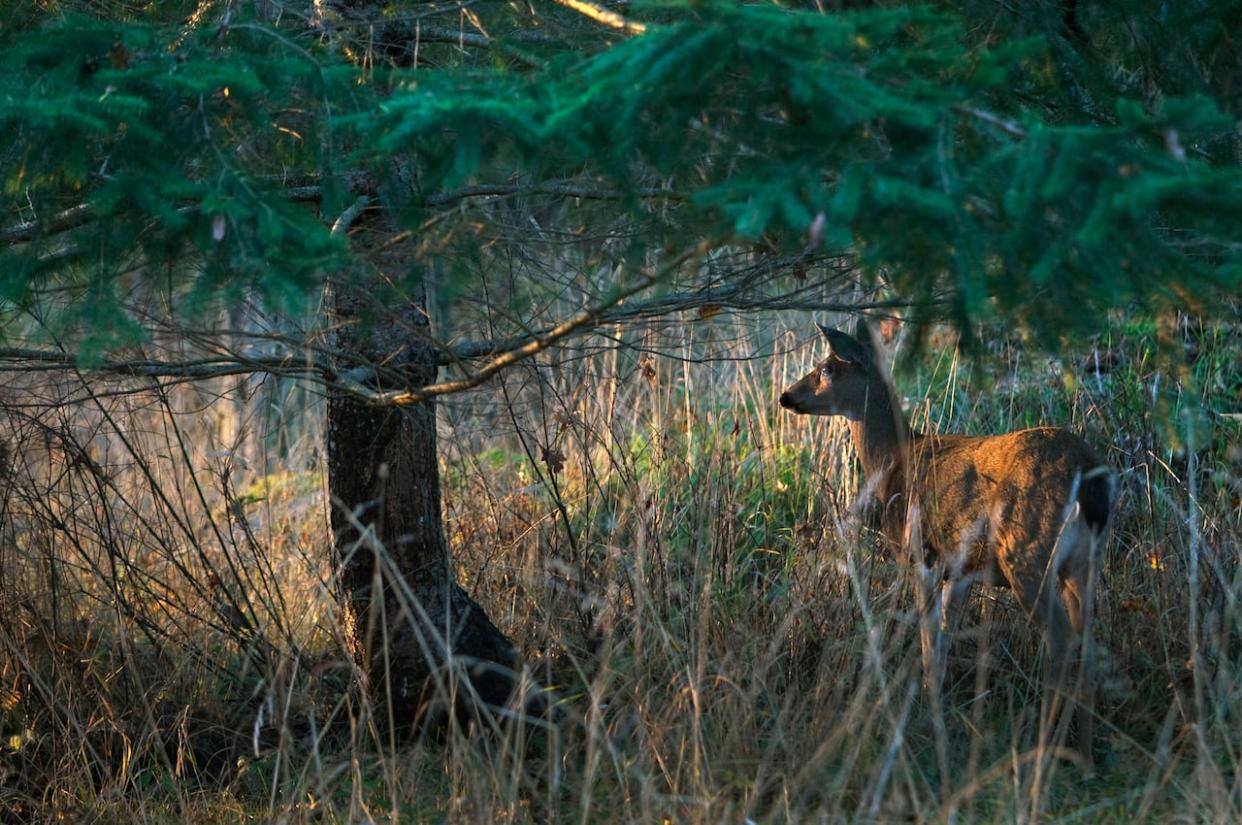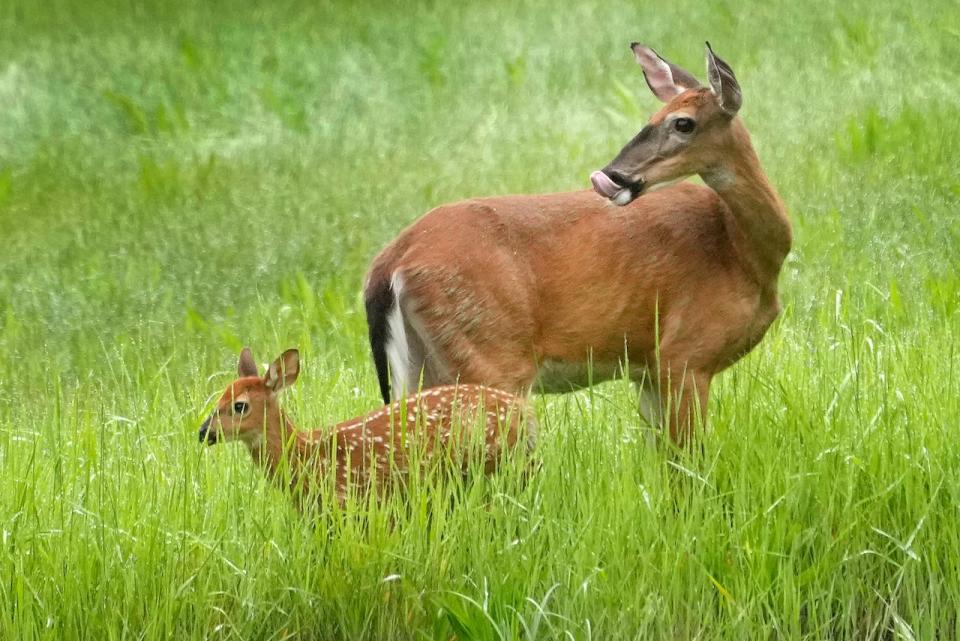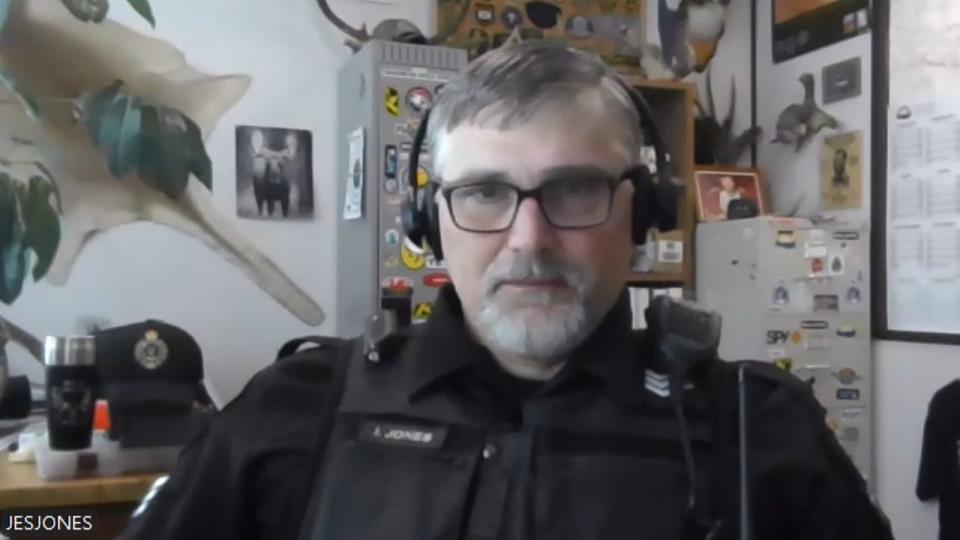3 B.C. hunters fined, banned for killing wildlife out of season

Three men from British Columbia's Lower Mainland have been fined and banned from hunting for 10 years each for "unlawfully killing wildlife," including a deer pregnant with two fawns, in an area near Kamloops, B.C.
Kyaw Aue Thah, Boe Boe Gyi and Ywa Baw Mu appeared before a provincial court judge on Thursday and were sentenced to violations under the Wildlife Act, according to the B.C. Conservation Officer Service (BCCOS).
In a social media post, the service wrote that one man was fined $8,000 and had his rifle and spotlights seized. The two other men received $5,000 in penalties. All three men have also been banned from hunting for 10 years.
The decision stems from a nighttime hunting trip in May 2020 near Darfield, 78 kilometres north of Kamloops.
The men, who had killed two deer despite the hunting season being closed, were stopped by a conservation officer conducting hunting compliance checks in the area.

A whitetail doe and her fawn keep an eye out from a field in this file picture. A pregnant deer was killed by the 3 men on their hunting trip in 2020, according to the B.C. Conservation Officer Service. (Robert F. Bukaty/The Associated Press)
It was later discovered one of the deer was pregnant with twin fawns.
B.C. Conservation Officer Service spokesperson Sgt. Jesse Jones told CBC News incidents like this aren't common in British Columbia and called it a "major problem."
"That's why we have conservation officers in the province … looking for this type of thing," he said. "Even though you might think you're remote, eventually you will run into a game warden and you will have to face the music."

Sgt. Jesse Jones, spokesperson for the B.C. Conservation Officer Service, said incidents like this aren’t common in British Columbia and called it a “major problem.” (Cory Correia/CBC)
Jones said the men also shot squirrels and marmot, both of which are illegal to hunt in British Columbia. The province actively bans hunting of female deer because they are usually pregnant in the spring.
He said it would be challenging for biologists to manage the deer population without the restrictions.
"This was a group of people that went out and chose to disobey all the laws and unethically trot around the landscape doing whatever they wanted," Jones said. "I don't want all British Columbians, that enjoy the resource or go on hunting, to be painted with that same brush."
The BCCOS says in its post that it hopes the significant penalty will help deter others from similar activities.
According to the service, most of the $18,000 levied in fines will go to the Habitat Conservation Trust Fund.
The fund, which was established under the Wildlife Act, describes itself as helping "groups and individuals secure funding for conservation projects and [providing] education to the general public about B.C.'s important natural assets" on its website.


